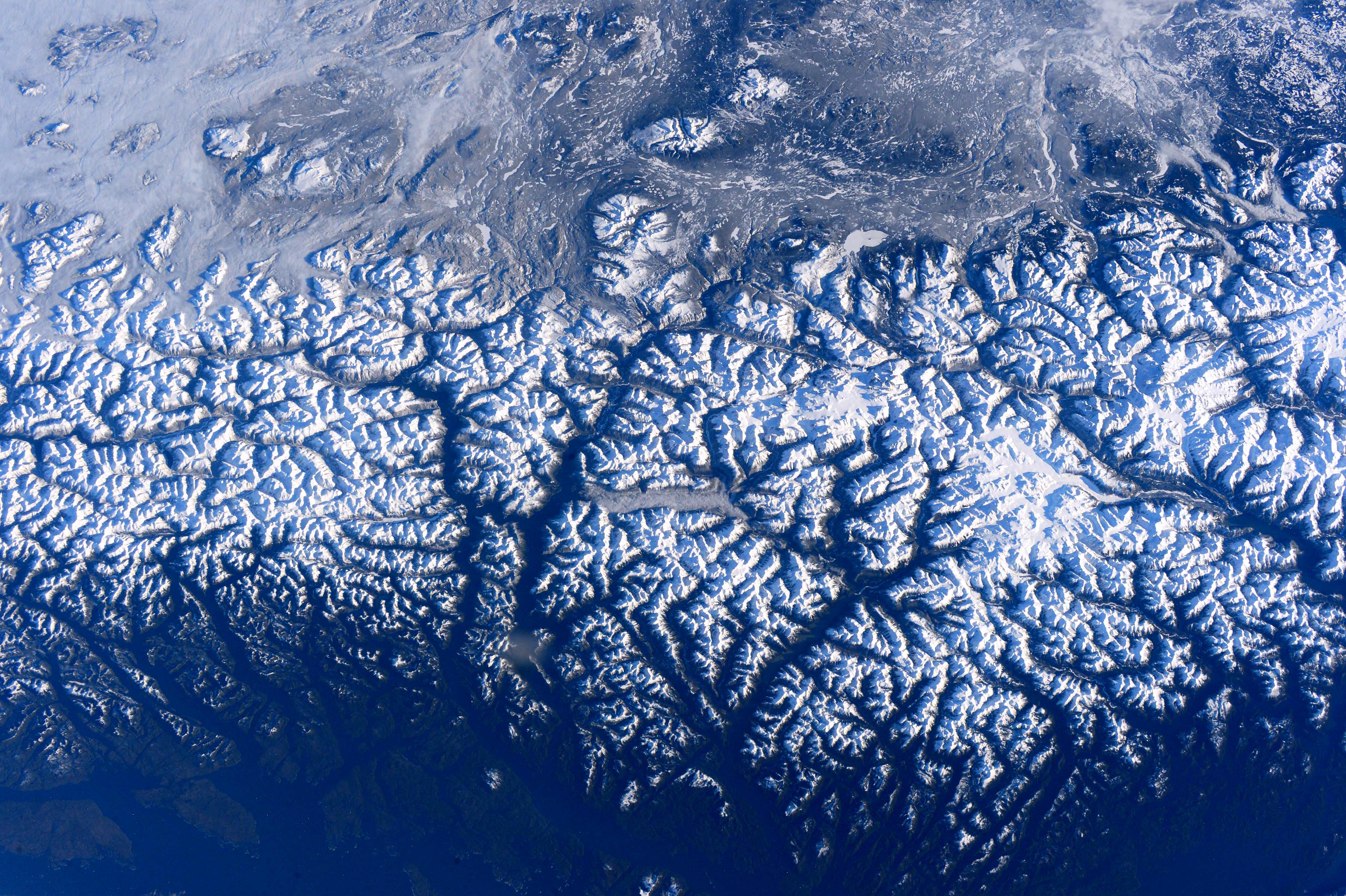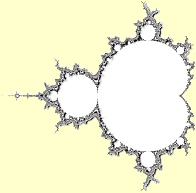
AutoHotkey | Android | Arduino | COMM140 | Fractals | Grammar Checkers | Knots | A Million Dots Activity | Processing | Processing for Scratch Users | Redbubble | Tutorials | Weather | World Time Meeting Planner | Favicon Generator.
Home > Tutorials > What are Fractals?
PowerPoint of Fractals from Space (22.39 MB) see also: Space Station Flyover of British Columbia's Coast Mountains http://go.nasa.gov/208Cr5c
Ultra Fractal 2.04 Notes
Local copy of Ultra Fractal 2.04
a movie of increasing magnification on 0.001643721971153 - 0.822467633298876i Local Copy
3D Limit Set see http://www.bugman123.com/Fractals/index.html
| 3D Limit Set - amazing 3D Quasifuchsian limit set, by Keita Sakugawa (advisor Kazushi Ahara) |
Vol Libre from Loren Carpenter on Vimeo.
The Fractalist: Memoir of a Scientific Maverick
by Benoit B. Mandelbrot
Pantheon, 324 pp., $30.00
Review in The New York Review of Books He Conceived the Mathematics of Roughness by Jim Holt

Hank Morgan/Time Life Pictures/Getty Images
Benoit Mandelbrot, 1982. Behind him is an attempted computer simulation of a crater field. Crater fields, such as those occurring on the moon, are formed by the cumulative impact of meteorites. They have a fractal structure, one that can be mimicked by computer methods. But the program that generated this not very plausible lunar landscape contained an error, leading Mandelbrot to dub the image ‘the computer bug as artist.’
Benoit Mandelbrot, the brilliant Polish-French-American mathematician who died in 2010, had a poet’s taste for complexity and strangeness. His genius for noticing deep links among far-flung phenomena led him to create a new branch of geometry, one that has deepened our understanding of both natural forms and patterns of human behavior. The key to it is a simple yet elusive idea, that of self-similarity.
Clouds are not spheres, mountains are not cones,
coastlines are not circles and bark is not smooth,
nor does lightning travel in a straight line.
- Benoit Mandelbrot
What is a fractal? (precisely)
It's hard to be precise! Like a biologists definition of life, a single definition doesn't capture all the important qualities.
It's a new word (c. 1975) and even those who know the word may have a hard time explaining it.
Which word does fractal sound like, or look like?
Fractals provides a way to quantify the roughness of a surface and generally have:
* detailed structure
* self-similarity in some sense
* simple formula, usually recursive
http://www2.cs.uregina.ca/~hepting/research/web/math-of-art/fractals.html
The most famous fractal is the Mandelbrot setWord of caution: Mathematical fractals have geometrical and mathematical properties, they do not provide much information about the physics of the object, its origin or its physical properties. In addition, strictly mathematical fractals are not found in nature; they are just convenient models of some natural objects. Fractals become better models of natural objects when some randomness is included in their construction, for instance by slightly changing the rule at randomly selected iterations. Another important point, already mentioned above, but impossible to overemphasize, is that natural objects are self-similar only over a limited range of scales, and thus fractals can be used as models of nature only within a certain range of scales.
http://www.unc.edu/~myang/nonlinear/fractals/geometry.htmlA fractal (from the Latin fractus, derived from the verb frangere, to break, to divide infinitely) is an object or a geometrical construct (or set of such objects) whose parts are somewhat identical or statistically similar with the whole through transformations that include translations, rotations and zooming. A structure is fractal if its finer shapes are indistinguishable or statistically similar to coarser ones, and thence there is no dominating scale.
http://www.unc.edu/~myang/nonlinear/fractals/defs.html

M. Romera
Instituto de Física Aplicada
Consejo Superior de Investigaciones Científicas
Serrano 144, 28006 Madrid, Spain
link added January 20, 2006
http://sprott.physics.wisc.edu/sa.htm
Link added July 11, 2006
The edge of the Mandelbrot Set is infinitely complex and contains an infinite number of tiny Mandelbrots, each of which contains an infinite number of other tiny Mandelbrots.
References:
Benoit B. Mandelbrot (1983). The fractal geometry of nature. New York: W. H. Freeman.
http://innopac.ballarat.edu.au/search/i0387972722

APA citation:
Russell, R. (2016, July 04, 02:04 pm). What are fractals?
Retrieved April 28, 2025, from
http://www.rupert.id.au/fractals/index.php
Last refreshed: April 28 2025. 10:18.06 pm
 This work is licensed under a Creative Commons Attribution-NonCommercial-ShareAlike 2.5 License.
This work is licensed under a Creative Commons Attribution-NonCommercial-ShareAlike 2.5 License.